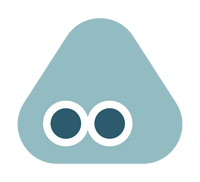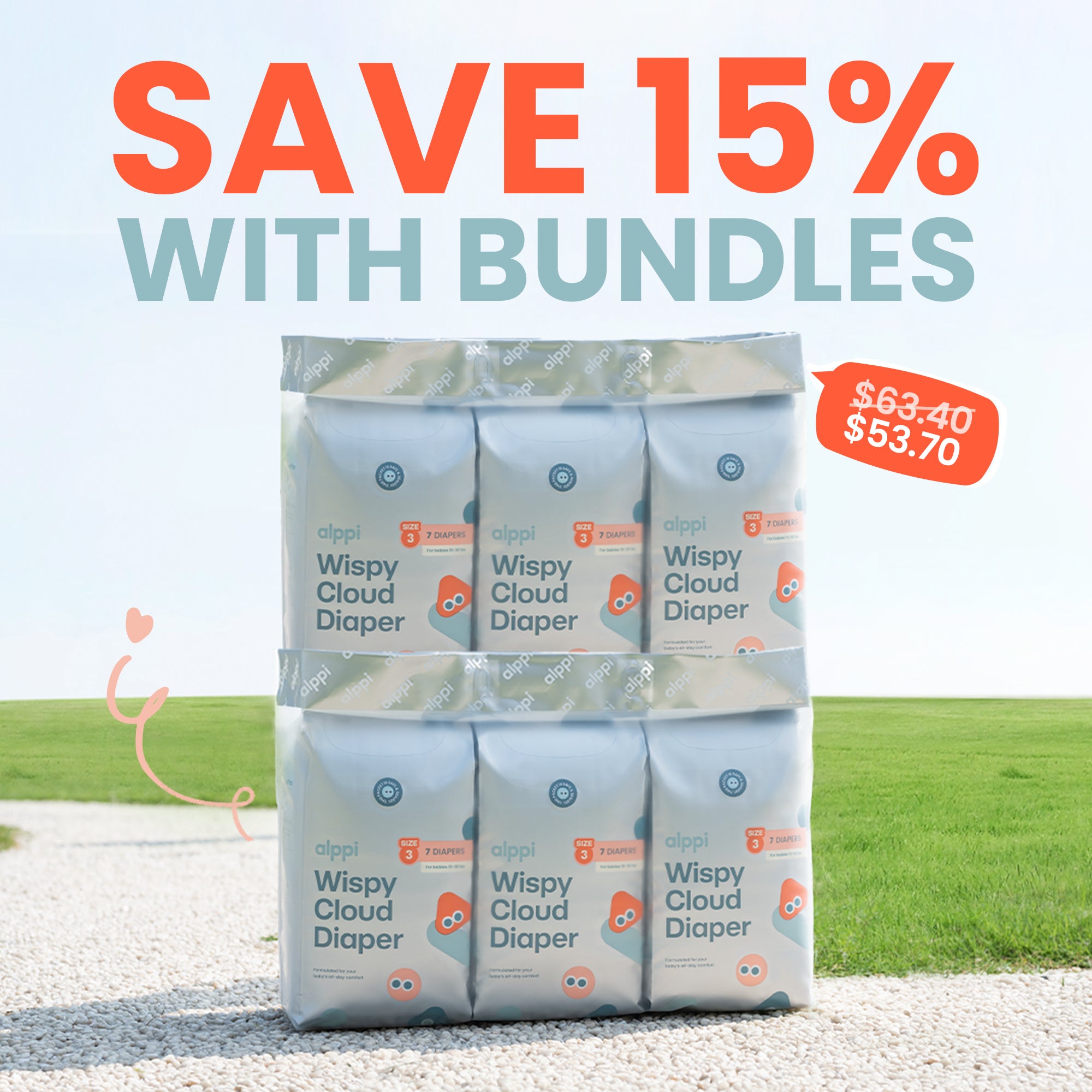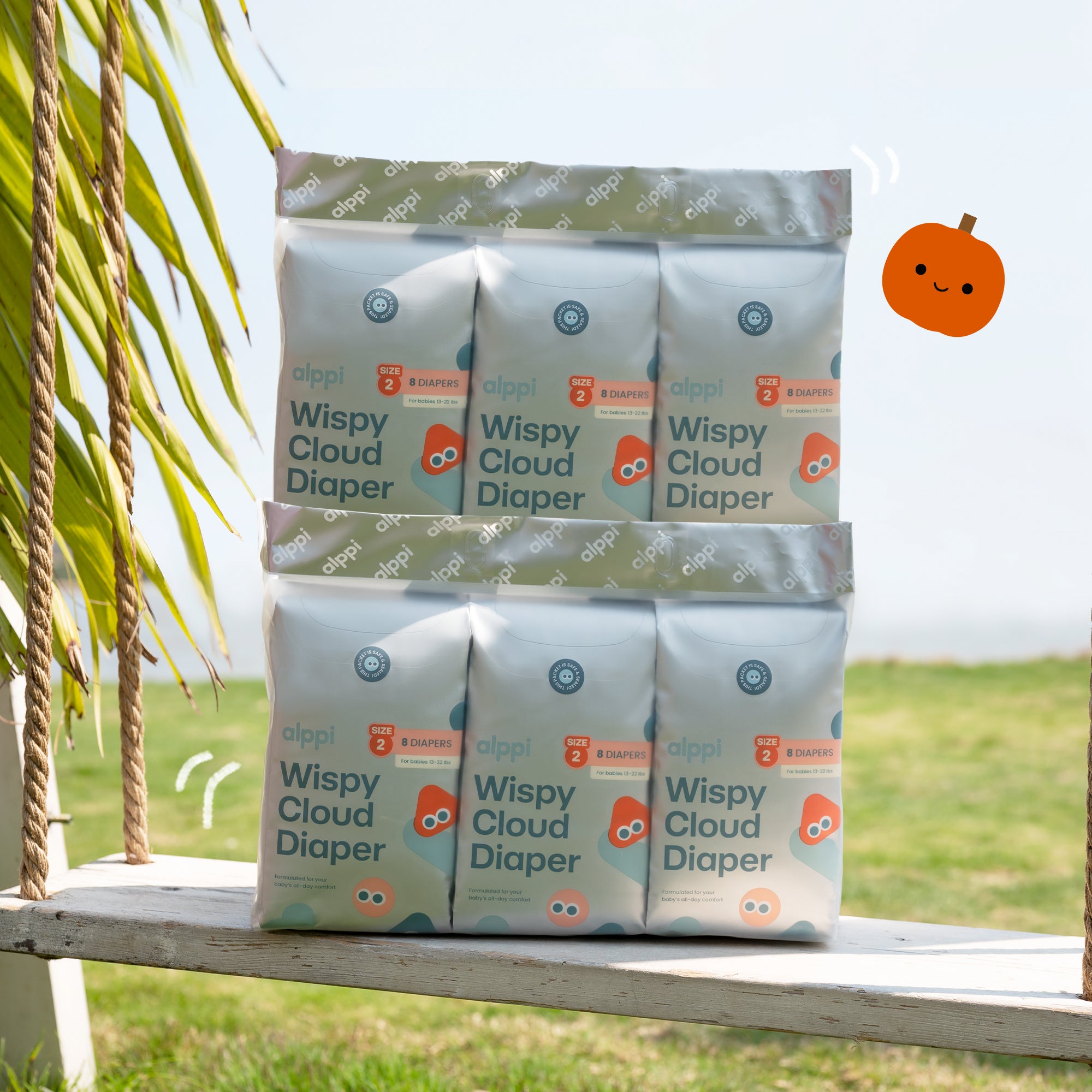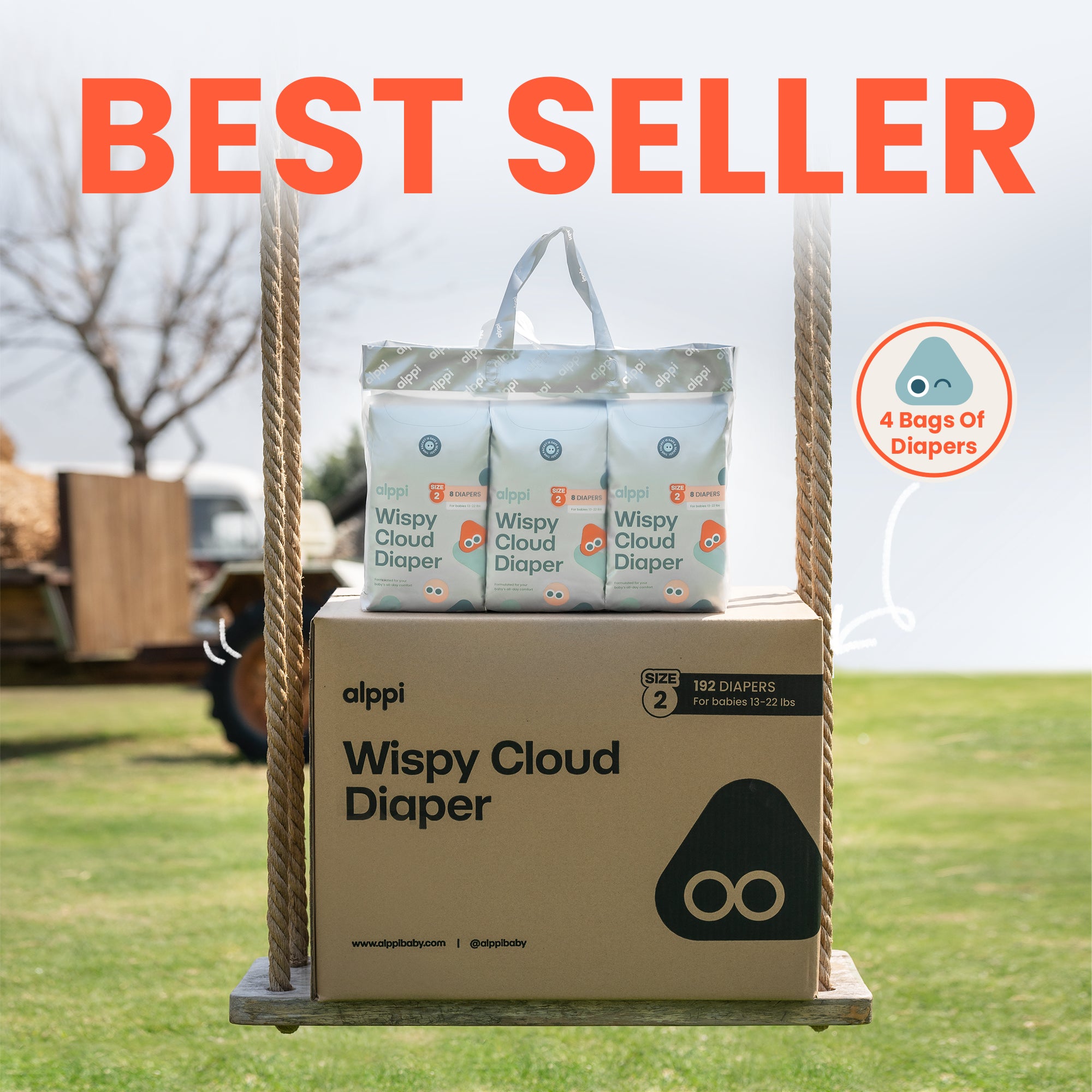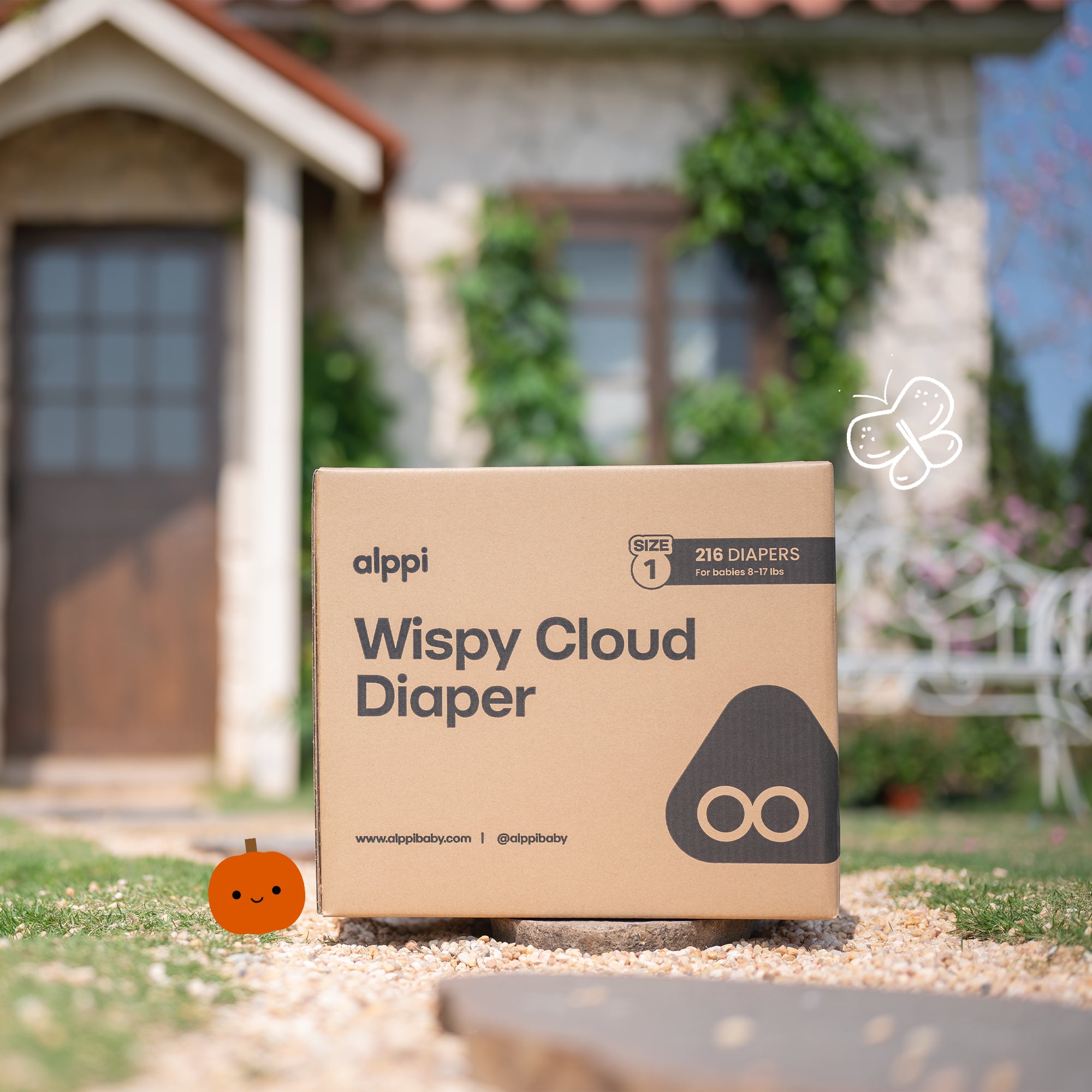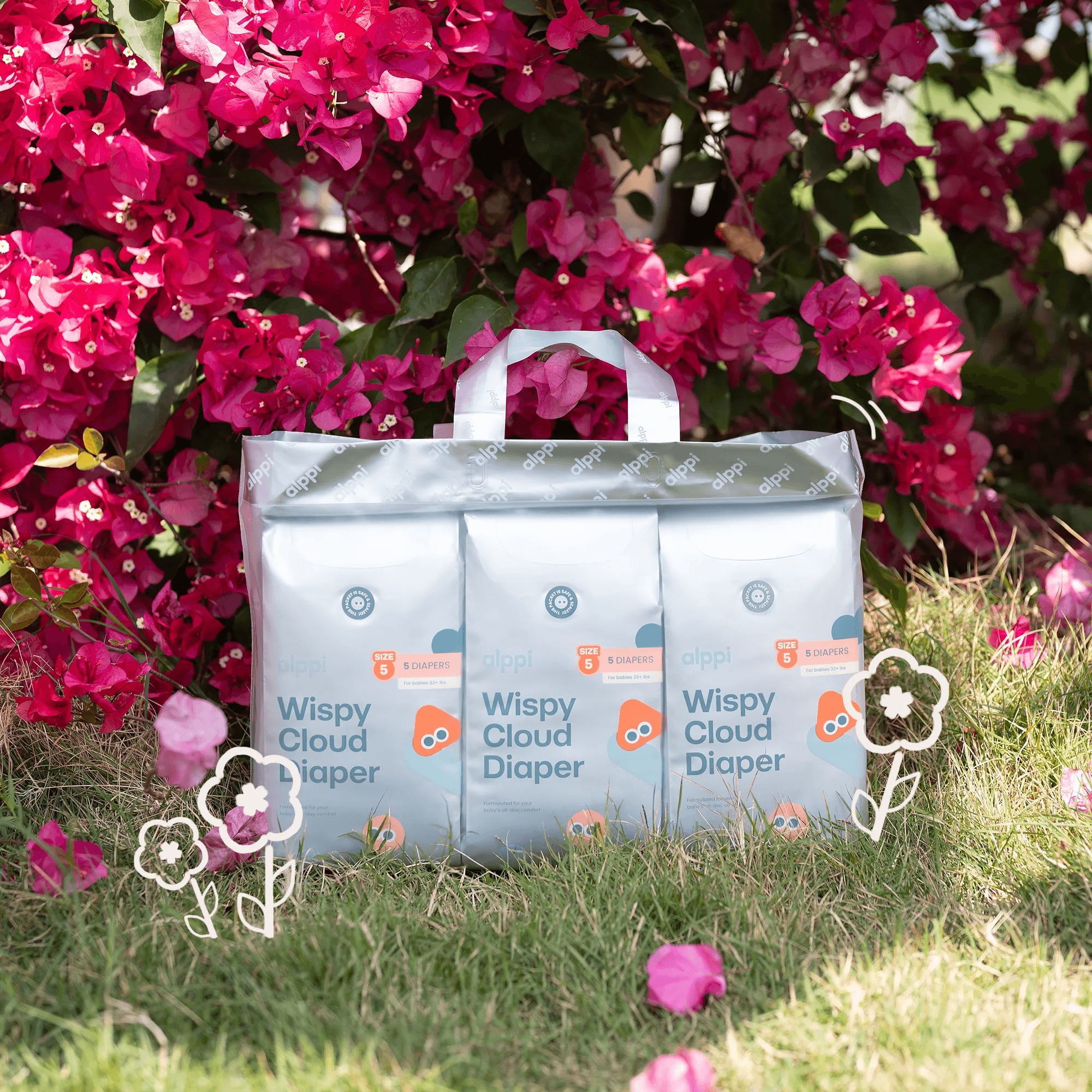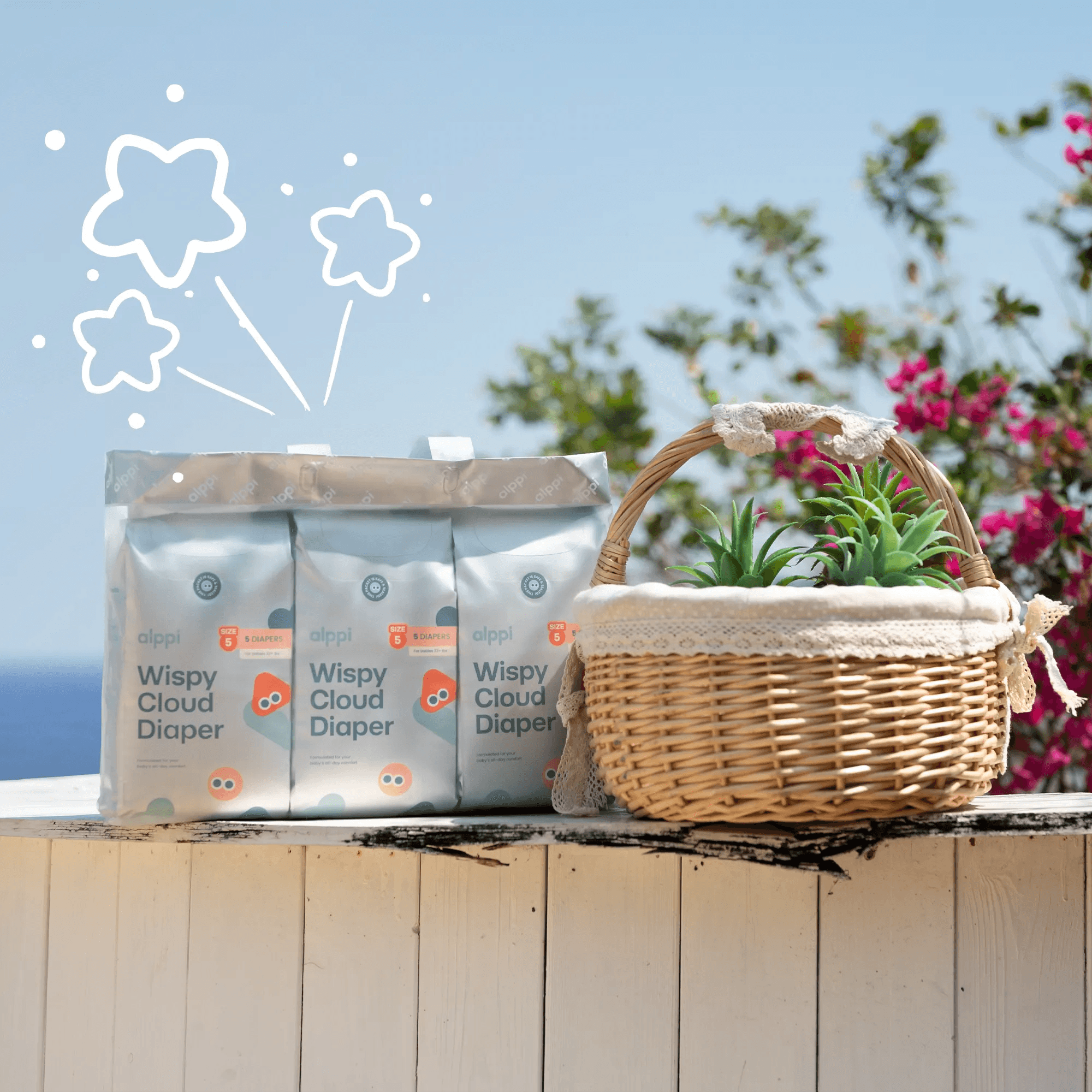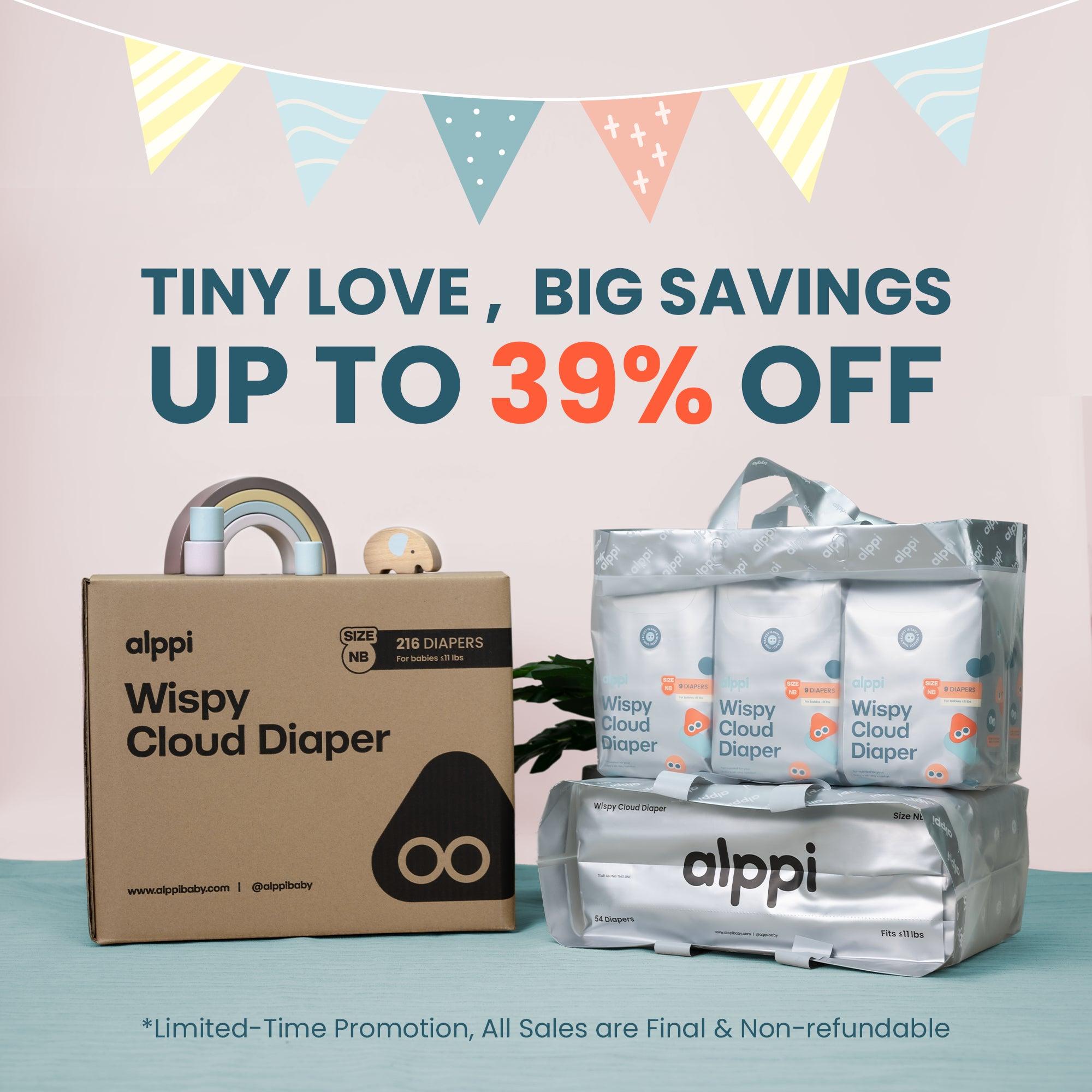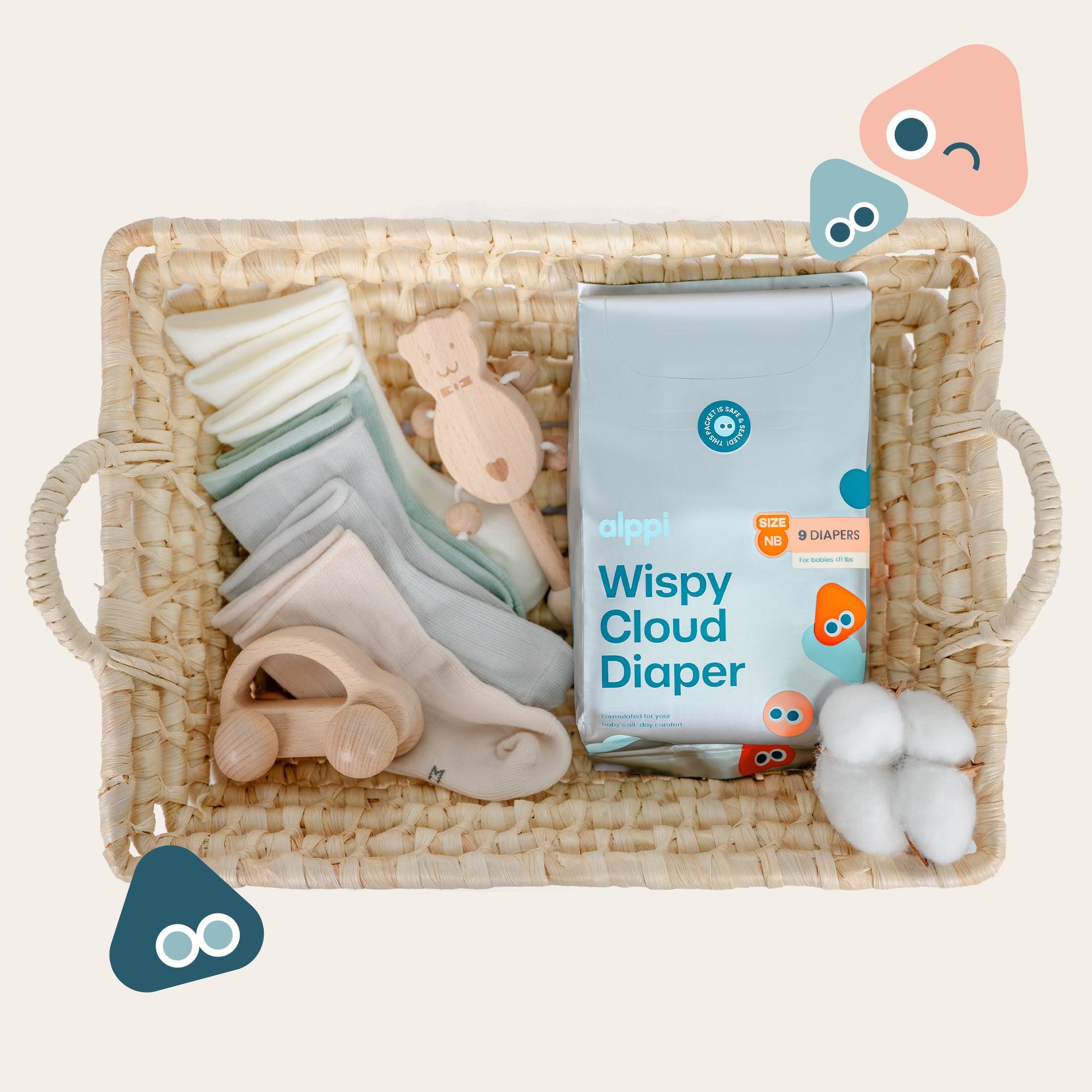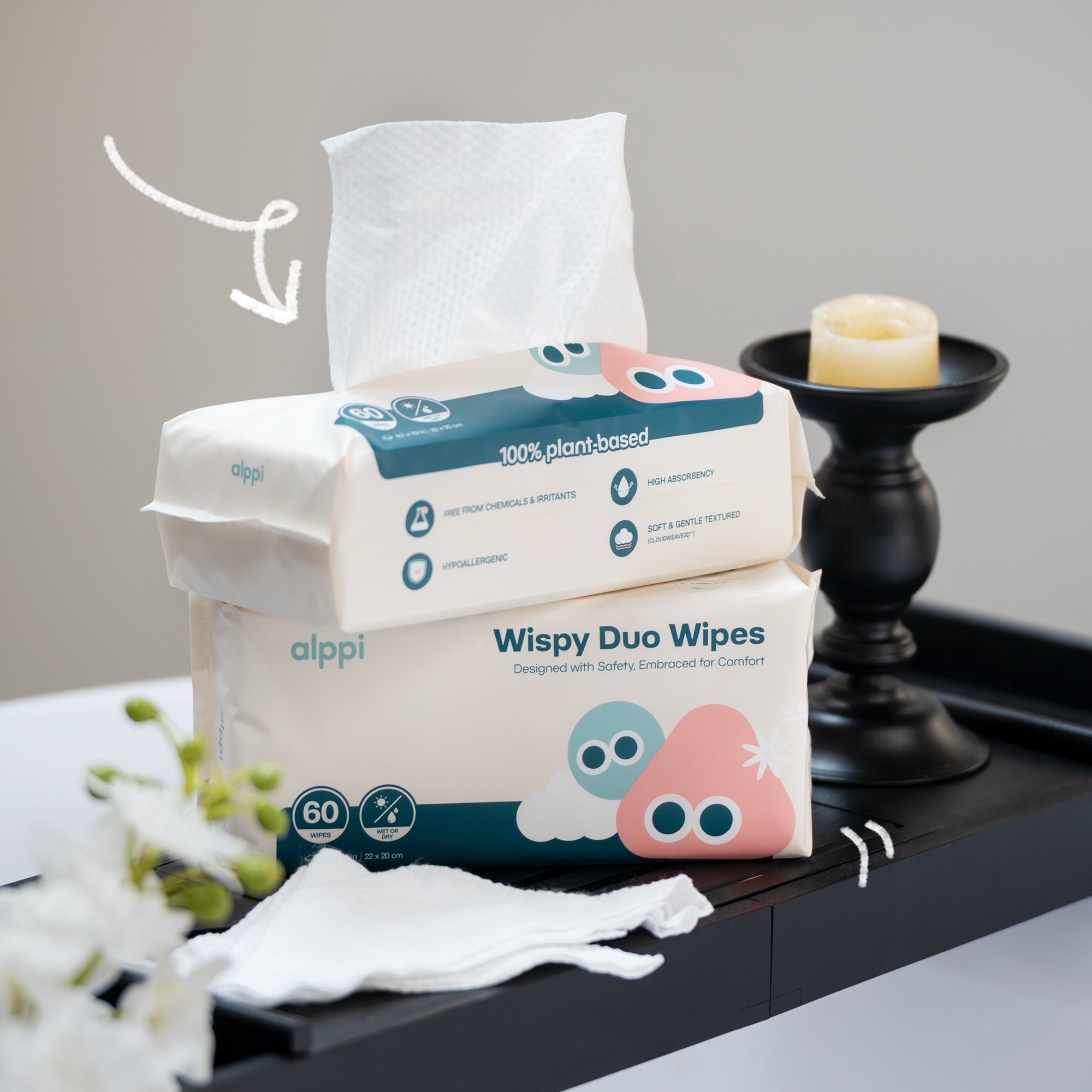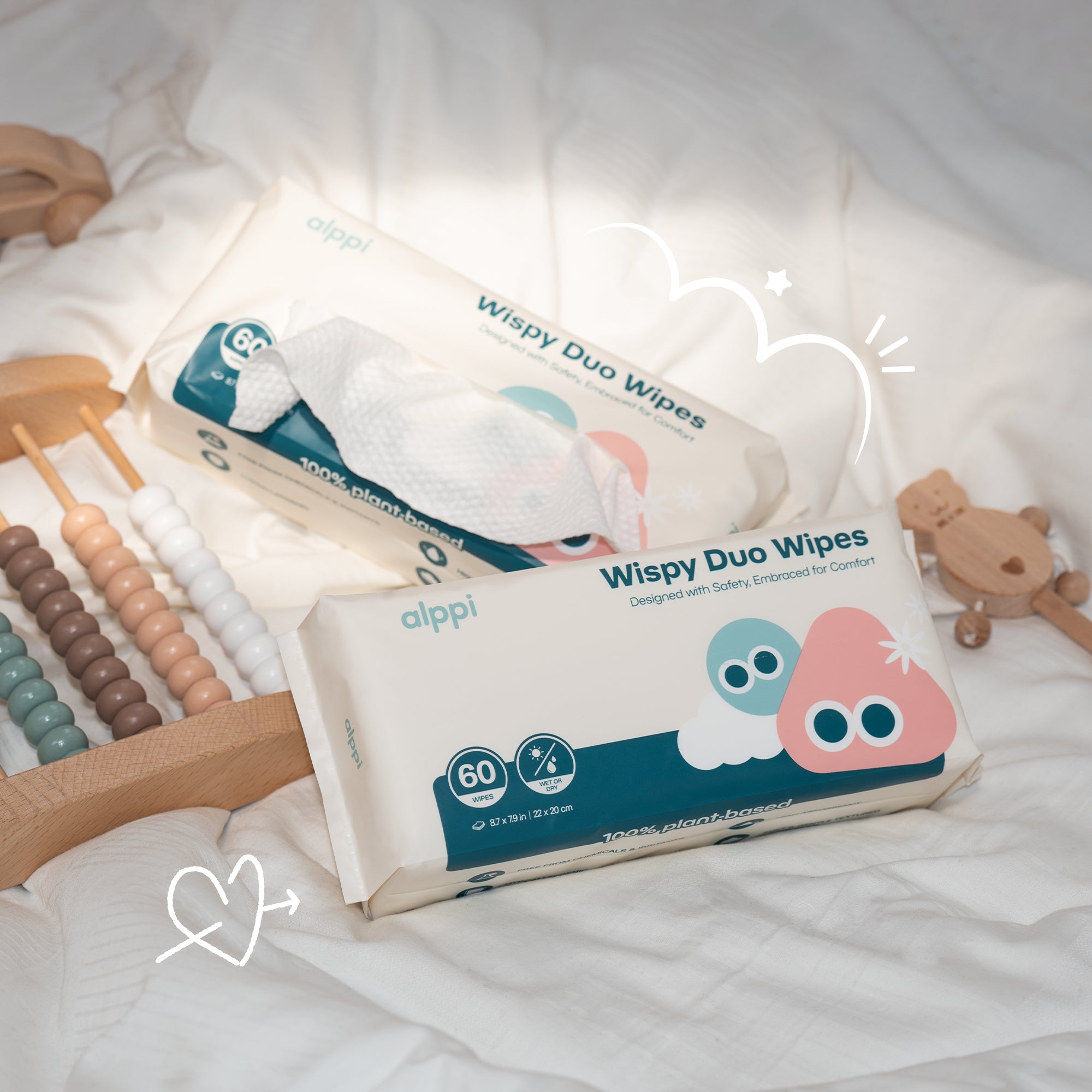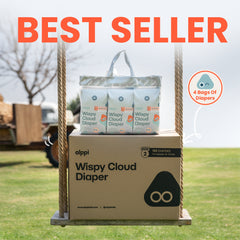Ever wondered if baby wipes actually kill germs or just clean the surface? You’re not alone—lots of parents ask, are baby wipes antibacterial or just gentle cleaners for everyday messes?
Most baby wipes aren’t antibacterial because they’re made to be soft and safe for your baby’s skin, not to disinfect.
Some wipes have ingredients like alcohol or benzalkonium chloride, which can kill bacteria. But you’ll usually see those labeled as antibacterial or disinfecting wipes.
Regular baby wipes focus on removing dirt and sticky stuff without using harsh chemicals. That way, they don’t irritate delicate skin.
Keep things clean naturally with our dry baby wipes — gentle, effective, and free from harsh chemicals.
Are Baby Wipes Antibacterial?

Most baby wipes just clean your baby’s skin—they don’t kill germs. They wipe away dirt, food, and messes, but don’t have strong antibacterial ingredients like alcohol or benzalkonium chloride.
Some wipes use mild cleansers, but the main goal is being gentle, not killing germs.
What Makes a Wipe Antibacterial?
Antibacterial wipes use special ingredients to destroy or stop bacteria from growing. Common ones are benzalkonium chloride, alcohol (ethanol or isopropyl alcohol), and sometimes triclosan.
These chemicals attack bacteria’s cell walls or proteins, cutting down germs on surfaces or skin.
Baby wipes skip these strong chemicals because they can irritate sensitive skin. Instead, they use water, mild cleansers, and soothing ingredients like aloe or chamomile.
These ingredients help lift away dirt but don’t kill germs.
Here’s a quick comparison:
|
Ingredient Type |
Found in Baby Wipes |
Found in Antibacterial Wipes |
Purpose |
|
Water |
✔ |
✔ |
Cleans and hydrates |
|
Benzalkonium Chloride |
✖ |
✔ |
Kills bacteria |
|
Alcohol |
✖ |
✔ |
Disinfects surfaces |
|
Aloe/Chamomile |
✔ |
✖ |
Soothes skin |
How Baby Wipes Differ from Antibacterial Wipes
Baby wipes are made for comfort and daily cleaning. They’re mostly water-based and free of harsh chemicals.
You use them to remove messes, not to sanitize. Antibacterial wipes are made to kill germs on your hands or surfaces and contain disinfecting agents that can dry or sting if you use them on delicate skin.
If you use them on your baby, you might see redness or irritation. Baby wipes clean, while antibacterial wipes sanitize.
Use baby wipes for diaper changes or sticky hands, but if you want to kill germs—especially after touching public surfaces—choose antibacterial wipes.
Reading Labels: Spotting Antibacterial Claims
Always check the label before buying wipes. If a product is really antibacterial, it’ll say so on the front or back.
Look for words like “antibacterial,” “kills 99.9% of germs,” or ingredients like benzalkonium chloride or alcohol.
If you see mostly water, plant extracts, or oils, it’s a regular baby wipe. Some brands say “natural antibacterial properties,” but that usually just means mild cleaning, not real germ-killing.
If you’re not sure, read the ingredient list. A short, simple formula usually means it’s gentle and made for cleaning, not disinfecting.
By reading our guide, How Often Should a Newborn Poop? Tips for Worried Parents, you’ll learn when and how to clean up safely.
Antibacterial Ingredients in Baby Wipes

Some baby wipes include chemicals that can kill or slow down germs. These might help reduce bacteria but can also cause irritation or dryness, especially on delicate skin.
Knowing what’s inside helps you pick wipes that clean safely without hurting your baby’s skin barrier.
Benzalkonium Chloride: Uses and Safety
Benzalkonium chloride (BAC) is a common quaternary ammonium compound in some antibacterial wipes. It works by breaking down the outer layer of bacteria and stopping their growth.
You’ll find it in disinfecting wipes, but it’s rare in baby wipes since it can irritate sensitive skin. BAC is effective against many bacteria and some viruses, but it can cause redness or dryness if you use it often, especially on babies.
Babies have thinner skin, so even small amounts of BAC might cause discomfort. If you like wipes with gentle ingredients, look for products marked “alcohol-free” and “gentle for sensitive skin.”
These usually skip BAC and use water and natural cleansers instead.
|
Property |
Benzalkonium Chloride |
|
Type |
Antimicrobial compound |
|
Common Use |
Disinfecting wipes, hand sanitizers |
|
Safety Concern |
Possible skin irritation in babies |
Triclosan and Other Antibacterial Agents
Triclosan was once popular in soaps and wipes. It stops bacteria from reproducing, but experts raised safety concerns.
Studies linked frequent triclosan use to hormone disruption and bacterial resistance. The FDA banned triclosan in over-the-counter hand soaps in 2016.
Most baby wipes now avoid triclosan and similar strong antibacterial agents. They use milder preservatives to keep mold and bacteria out of the package.
Stuff like citric acid or sodium benzoate keeps wipes fresh without harsh side effects. If you see “antibacterial” on a baby wipe label, check the ingredients—sometimes they sneak in stronger stuff meant for adults, not babies.
Potential Effects on Sensitive Skin
Baby skin is thinner and dries out faster than adult skin. If you use wipes with antibacterial chemicals like BAC or triclosan, your baby’s skin might get dry, red, or develop a mild rash.
Even wipes labeled “gentle” can irritate if you use them too much or skip moisturizer afterward.
You can protect your baby’s skin by picking water-based wipes made with simple stuff like aloe vera or chamomile. These soothe while cleaning away dirt.
If your baby has eczema or super sensitive skin, test new wipes on a small spot first. Avoid wipes with fragrance, alcohol, or strong antibacterial agents to lower the risk of irritation.
Explore organic baby diapers for a fully natural diapering routine that pairs perfectly with safe wipes.
When to Use Antibacterial Wipes vs. Baby Wipes

You use baby wipes for gentle cleaning and antibacterial wipes when you need to kill germs. Each type works best depending on how sensitive the skin is and whether you’re cleaning a surface or your baby’s skin.
Routine Cleaning Needs
Baby wipes are perfect for everyday messes like diaper changes, sticky hands, or quick face cleanups. They’re made with mild stuff like water, aloe, or chamomile to help protect your baby’s skin.
Most baby wipes skip alcohol or harsh disinfectants, so you can use them several times a day without drying out your baby’s skin.
Use baby wipes when you want to remove dirt, food, or residue, not kill germs. They clean by wiping away messes, not by using chemicals to disinfect.
|
Use Baby Wipes For |
Why They’re Best |
|
Diaper changes |
Gentle and soothing |
|
Hands and face |
Non-irritating |
|
On-the-go cleanups |
Convenient and safe for skin |
Situations That Call for Antibacterial Protection
Antibacterial wipes work better when you want to cut germs on surfaces or adult hands. These wipes usually have alcohol or benzalkonium chloride, which kill bacteria and some viruses.
You might grab them after touching shopping carts, door handles, or restaurant tables. They’re also handy when you can’t wash your hands with soap and water.
Don’t use antibacterial wipes on your baby’s skin—the ingredients can dry out or sting. Instead, keep a pack for cleaning toys, high chairs, or your own hands before you pick up your baby.
Tip: Always check the label—some wipes are made for surfaces, not skin.
Practical Tips for Parents
Keep both types of wipes nearby. Store baby wipes at your diaper station and antibacterial wipes in your purse or car.
Use baby wipes for diaper changes, feeding messes, and gentle cleanups. Save antibacterial wipes for disinfecting toys or your hands when you can’t get to a sink.
When you’re not sure, remember: baby wipes clean; antibacterial wipes sanitize. Using the right one keeps your baby’s skin happy and helps keep germs away.
Explore Diaper Sizes by Weight Chart for Parents to find the perfect fit that complements your wipes routine.
Gentle Cleaning Without the Harsh Chemicals

So, are baby wipes antibacterial? Usually not — and that’s a good thing! Antibacterial chemicals can be too harsh for your baby’s sensitive skin. Instead, choose gentle wipes that clean effectively without irritation.
When it comes to keeping your baby clean, not every wipe needs to kill germs — in fact, most shouldn’t. Regular baby wipes are made to gently remove dirt and messes, not disinfect, because harsh antibacterial agents can irritate delicate skin.
Alppi Baby’s Wispy Duo Wipes are a perfect choice for everyday care. Made with plant-based fibers and infused with aloe and chamomile, they cleanse effectively while soothing and protecting sensitive skin.
They’re free from alcohol, parabens, and antibacterial chemicals like benzalkonium chloride, making them safe for frequent use on your baby’s face, hands, and diaper area.
Choose Alppi Baby’s Wispy Duo Wipes for what your baby truly needs: clean, soft, and happy skin — naturally. We’re also giving a 15% off on the first wipes order, use code: WIPES15.
Pair them with Alppi Baby diapers, available in monthly box and diaper bundles for the perfect gentle care routine. Choose Alppi Baby today — where comfort, safety, and love come first!
Frequently Asked Questions
Can baby wipes be used as a substitute for antibacterial wipes?
No, most baby wipes can’t replace antibacterial wipes. Regular baby wipes are made to clean up dirt and messes, not to disinfect.
Antibacterial wipes have ingredients like alcohol or benzalkonium chloride that kill germs—baby wipes usually don’t have those.
What are the best antibacterial hand wipes suitable for babies?
Go for alcohol-free antibacterial wipes that say they're safe for babies. Brands using gentle stuff like benzalkonium chloride instead of alcohol work better for sensitive skin.
Check the label for “hypoallergenic” and “dermatologist tested.” It's worth double-checking before you use anything on your baby’s hands.
Are there any harmful ingredients to look out for in baby wipes?
Yep, steer clear of wipes with alcohol, parabens, fragrance, or phenoxyethanol. Those can dry out or irritate your baby’s skin.
I’d stick to wipes with simple ingredients like purified water, aloe vera, or chamomile. It just feels safer for little ones.
Do baby wipes effectively clean and disinfect skin?
Baby wipes clean off dirt, sweat, and oils, but they don’t disinfect skin. They’re handy for quick clean-ups between baths.
If you want to reduce germs, only use wipes that say “antibacterial” or “disinfecting.” Otherwise, don’t expect them to kill bacteria or viruses.
Is it safe to use baby wipes on toddlers for antibacterial purposes?
You can use baby wipes on toddlers for everyday cleaning. But for killing germs, you’ll need wipes made for antibacterial use and still safe for young skin.
If you can, just wash hands with soap and water. That’s usually the best bet anyway.
Can antibacterial wipes be used on sensitive private areas for babies?
Don’t use antibacterial wipes on private areas. The strong chemicals in them can make your baby’s skin red or sore.
It’s better to use gentle, fragrance-free baby wipes or just plain water during diaper changes. That way, you’ll help keep your baby’s skin healthy and happy.
